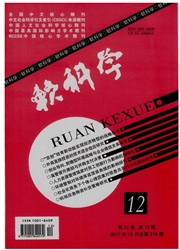

 中文摘要:
中文摘要:
基于西部6省市16个民族聚居地共1 112个有效样本,综合采用因子分析、方差分析的定量研究工具,对我国西部民族地区旅游开发地居民满意度进行了实证考察.结果表明:只有三分之一的家庭参与到旅游经营,且大都从事吃、住、购等传统服务业,参与程度不深.居民对“经济增长、投资环境改善、基础设施建设、地方知名度”等正面感知强烈,对“劳动力培训、保护当地文化”的正面感知较弱,并且对“环境恶化、人口聚集、社会治理乏力”的负面感知强烈.在相关影响因素中,教育、家庭参与旅游开发、收入会引致个体明显的感知差异,而政治面貌、居住地与景区距离的影响则不明显.提高居民满意度应更侧重于旅游收益分配机制的改善和公共服务的提供.
 英文摘要:
英文摘要:
Based on 1120 samples in sixteen minority nationality areas and six western provinces, this paper conducts an empirical analysis concerning degrees of local residents' satisfaction in areas featured by tourism development by the application of factor analysis and variance analysis. It is found that only one third of the households participate in affairs relevant to tourism, the majority of whom get involved in traditional businesses, accommodation, catering and shopping industry and etc. In terms of pos- itive perception, the residents are keen to economic development, investment climate, infrastructure and local awareness yet insensitive to professional training and cultural preservation. In terms of negative perception, people are highly aware of environmental degradation,intensive population and lack of social governance. The degrees of perception vary significantly to other related factors, including education, household participation in tourism development and income level. With regard to political status and distance between residence and scenic spots, no obvious perception disparity can be seen. The paper further proposes that greater emphasis should be place on the improvement of tourism income distribution mechanism and public services in quest for a higher level of residents' satisfaction.
 同期刊论文项目
同期刊论文项目
 同项目期刊论文
同项目期刊论文
 期刊信息
期刊信息
